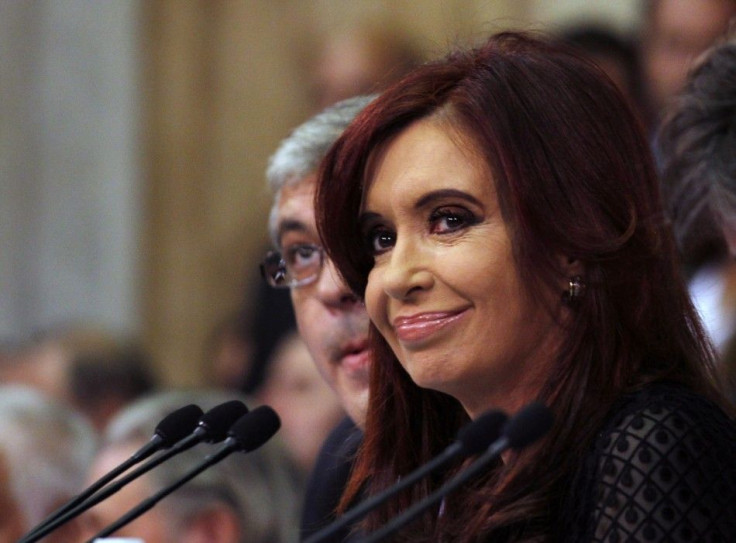Argentina Should See Second Half Growth, Followed By Contraction -- Again

A rebound in agricultural production following a 2011/12 drought probably buoyed Argentina’s gross domestic product in the third quarter -- but the respite may be temporary.
“In seasonally adjusted terms, we estimate that Argentina pulled out of recession in Q3 with growth of 0.4 percent,” said Michael Henderson, Latin American Economist for Capital Economics, in a research note on Wedneday. ”And early signs are that the economy will also witness a mild pace of expansion.”
Annual growth for South America’s (arguably) third-largest economy is expected by the macro economic research firm to be flat and for the country to dip back into recession next year after being in contraction for the first half of 2012. The latest estimates of growth are based on observing other indicators rather than relying on official government data.
The country has never fully recovered from recent downturns and has been suffering from hyperinflation, which the government of Preisdent Cristina Fernández de Kirchner has been trying to cover up by manipulating the country’s statistics institute.
According to U.S. Department of Agriculture data, Argentina saw a 3 percent increase in agricultural production, which will help offset a weak construction sector and be helped by a slight increase in industrial activity helped by recovery in Brazil, the reigon’s economic giant.
The estimated flat annual growth assumptions by Capital Economics is significantly more bearish than other estimates. A Thompson Reuters poll in October of 21 economists estimates 2012 growth of 2.9 percent, which is up from a July poll that put the figure at 2.5 percent.
Likewise, the International Monetary Fund estimates 2.6 percent while the World Bank forecasts 2.2 percent.
The country's inflation is estimated around 20 percent to 25 percent and could increase over 30 percent in coming years if the government continues to increase its deficit, according to Capital Economics' third-quarter Latin America report, released Tuesday.
Argentina registered 8.9 percent growth in 2011 on the strength of car and grain exports.
In July, President Cristina Fernandez ordered the country's largest banks to lend $3.3 billion with interest rates of no more than 15 percent, thought to be below the real inflation rate.
In April, Argentina's government nationalized oil company YPF SA (NYSE: YPF), formerly a unit of Spain's Repsol SA (PINK: REPYY), following disputes over imports. The Spanish government called the move a "hostile decision," and analysts consider the country to be unattractive for foreign investors.
On Thursday, Spanish Foreign Minister Jose Maria Garcia Margallo said his government hopes to reach a solution over how much to compensate Repsol for the seizure.
"There are conversations between the Argentinean and Spanish governments about the matter every single day, with discretion, which is how you do things in a democracy ... and I hope we will have a solution relatively soon," Margallo said on national television, according to Reuters.
Argentina previously had a major economic crisis between 1999 and 2002, after the peso was bound to the U.S. dollar and the government borrowed heavily from the International Monetary Fund. It defaulted on $95 billion in debt and later unbound its peso from the dollar.
© Copyright IBTimes 2024. All rights reserved.






















